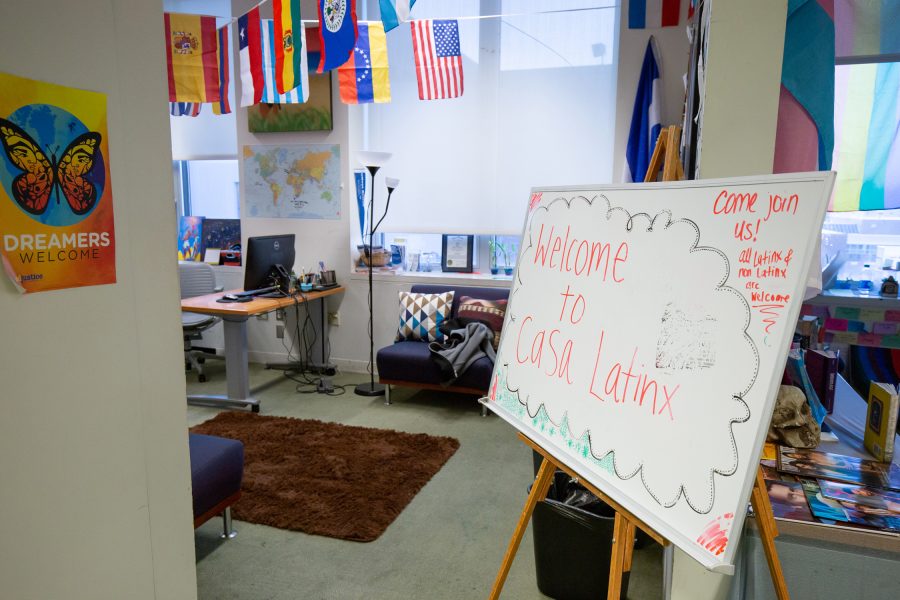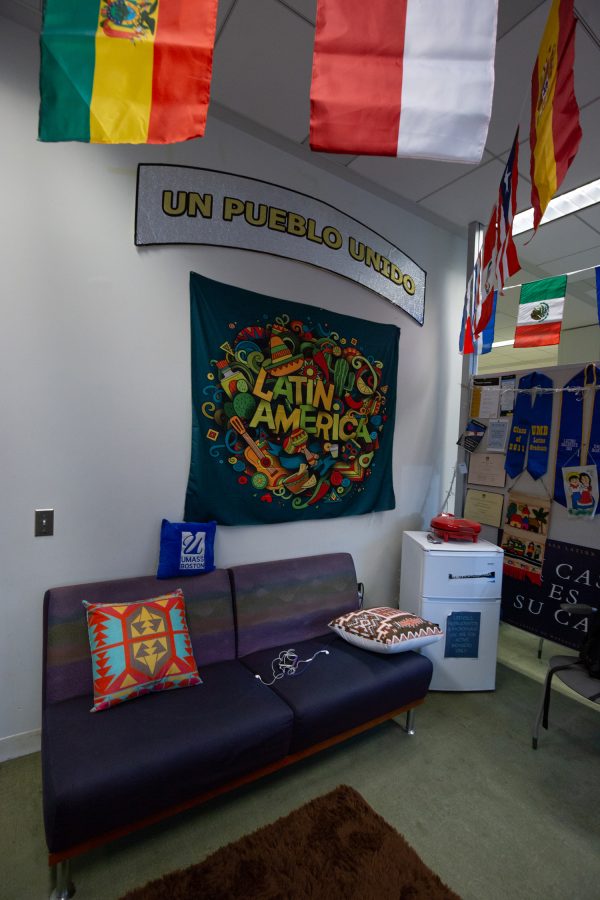In 1989, Casa Latinx was founded as a safe space for Latin-American students at the University of Massachusetts Boston, by former student Sandra Lopez. The first meetings that Casa held took place in Wheatley Hall on the fourth floor, though the association now resides on the third floor of the Campus Center. Many members, when asked about what Casa meant to them, said that it felt like a home to them. UMass Boston alumni and former president for Casa (2012-2013), Emanuel Pimentel, believes that the space acts as bridge between student interest and culture, stating that he had gained a deeper understanding and connection with his own culture and identity through participation with the programming and other members. “It is not only a student organization; but a way of life,” Pimentel says.
Elizavette Cordero, the coordinator for Casa Latinx last semester, believes that, after her arrival, Casa has entered a new era of younger students becoming more involved with the current affairs of the club. Originally Cordero comes from a background in theater—more specifically stage and production management. She says that even though she had a good idea of how to conduct herself as a leader and organizer, the position of coordinator challenged her in new and interesting ways that she didn’t really think was possible. “It is more than project management and organizing, it’s relationships with people.” Like Pimentel, Cordero believes that her relationship with her own cultural identity has suffered by being raised in the states most of her life. “Having my family come here from El Salvador and kind of being stripped away of their own culture, having to assimilate to American culture; coming to Casa has helped me connect with my history and my roots, and understand the past and how we got to this point.”
At the moment, Cordero has chosen to step down from the position of coordinator with plans to help out with the upcoming May graduation. This semester’s coordinator for Casa is Edward Meja, a junior Biology Major, with intentions of increasing the amount of student leadership and involvement on campus. He hopes to make Casa a more transformative space in the hands of its members.
One of the premier events for Casa Latinx is their Mi Casa Es Su Casa event, which was held earlier last semester. Pimentel describes the event as “Our version of welcome week.” According to Cordero, the event had been in the making since early July; this particular event made it in the eleventh anniversary of Casa. This was the first time that the club had collaborated with so many different outside organizations; such as the Gaston Institute, the Latino Studies Program, the Latino task force, and UNAM (Universidad Nacional Autónoma de México) Boston. “It really was a collaboration of the entire Latino community in UMass Boston,” Cordero says. Chancellor Katherine Newman even dropped by to give her regards to Casa Latinx and its accomplishments.
As of now, Casa Latinx is providing a variety of different opportunities, both in and out of the classroom, for students of Latin descent, by linking its members and associates to different scholarships and internships around Boston and the campus; such as the Robert Hildreth Latin America Internship Awards and the Davis Putter Scholarship. Casa Latinx usually holds their weekly meetings at 2–3 p.m. on Wednesdays on the third floor of the Campus Center.


